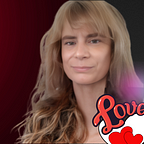Who Are We?
We don’t quite know who we are we remember the basics of our biography. We are unsure of two things in particular. We don’t have a stable sense of what we’re worth and we don’t have a secure hold on our values or our judgments.
Without knowing who we are we have trouble coping with denigration or adulation. If other people decide we are worthless or inadequate there will be nothing inside us from swallowing their verdict entirely, no matter how extreme or unkind those might be. We will be hopeless in the court of public opinion. We will always be asking other people what we deserve before seeking inside for an answer.
Lacking an independent verdict we also stand unnaturally hungry for external praise. The clapping of an audience will matter far more than would ever be wise. We rush toward whatever idea the crowd happens to love. We will laugh at jokes that aren’t funny, accept undeserving concepts that are in vogue, and neglect our more authentic talents for easy popular wins. We will trail public opinion slavishly checking the world’s whims rather than checking an inner barometer to know what we should want and feel and value.
We need to be kind to ourselves, no one is born with an independent ability to know who they are. Knowing ourselves is the legacy of having been known properly by someone else at the start. We learn to have an identity because, if we’re blessed in our early years, someone else takes the trouble to study us with immense fairness, attention, and kindness and then plays us back to us in a way that makes sense and that we can later emulate. They give us the beginning of a true portrait of our identity which we can then take on and enrich over the years as a defense against the distorting verdicts from hurried or ill-intentioned others. They validate our feelings.
Ideally, the parent interprets us as likable, a good parent offers generous interpretations, they are on the side of the child and are always ready to put the best possible gloss on moments of ill-temper or failure which forms the basis of resilience, and self-esteem can later emerge. That’s ideal, and, it can, of course, go very wrong and often does. Parents may offer mirroring that is out of sync with what the child is feeling (“Oh, look, be happy, it’s okay, you don’t have to be sad”) thereby badly scrambling the child’s ability to connect with their own emotions. A parent may offer a harsh or punitive way of interrupting itself, repeatedly mentioning that the child is ill-intentioned or no good or the parent might not show very much interest in the child focusing themselves elsewhere so that the child grows up with the feeling that not only is it not worth cherishing but also that because it hasn’t been adequately seen and mirrored that it doesn’t even quite exist, the direct consequence of emotional neglect.
Realizing that we lack a stable identity is a sobering realization but we can with a fair wind start to correct the problem at any point. We need to seek out the help of wise and kindly other people perhaps someone such as a good psychotherapist, someone who can study us closely and mirror us properly and then validate what they see. Through their eyes, we can begin to study, perhaps for the first time, how we feel and take seriously what we want. We can, by being witnessed generously, more often begin to take our sides and feel increasingly solid inside trusting ourselves more than we trust the crowd, feeling that we might be able to say no, not always swaying in the wind, and feeling that we have some of the important truths about us. Having to come and know ourselves like this we will be a little less hungry for praise, a little less worried about the opposition, and a lot more original in our thinking. We will have learned the vital art of both knowing and befriending who we are.
